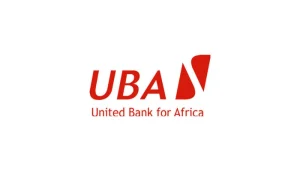ADVERTISEMENT
The relentless pursuit of a quality education often puts students in front of a significant financial challenge. The contemporary educational scenario, marked by technological advances and increasing demands in the labor market, makes it imperative that students seek a solid and relevant education.
However, the costs associated with renowned institutions and educational programs of excellence, coupled with the burgeoning expenses, can be prohibitive for many. Faced with this financial dilemma, many students ponder the feasibility of education loans as an alternative to achieving their academic and professional goals.
ADVERTISEMENT
This reflection on the balance between the quality of the desired education, and the necessary investments, including education loans, highlights the complexity of the decisions that students face when seeking to improve their skills and knowledge.
1. Education as an investment
Education is often considered one of the best investments someone can make in themselves. By acquiring knowledge and skills, individuals increase their career prospects and open doors to opportunities that contribute to personal and professional growth.
ADVERTISEMENT
2. The Financial Barrier
However, the financial challenge of affording a quality education persists as a significant obstacle for many aspiring students. Exorbitant tuition fees, costs associated with specialized teaching materials, and other expenses related to academic life can create a substantial financial barrier.
Faced with this reality, a considerable portion of students are faced with the need to seek viable financial solutions, and it is in this context that educational loans emerge as an attractive tool to overcome these economic barriers.
When pondering decision – making regarding these loans, students find themselves immersed in a complex equation that involves educational aspirations, economic realities, and the search for opportunities for personal and professional growth.
3. Accessibility and Equal Opportunities
Educational loans play a crucial role in promoting accessibility and equal opportunities. Offering financial resources to students from diverse backgrounds contributes to building a more equitable society where financial condition does not limit access to education.
4. Interest rates and Financial Planning
However, it is critical that borrowers understand the Associated interest rates and develop a sound financial plan. Planning loan repayment management is essential to avoid future financial challenges while ensuring that investment in education results in lasting benefits.
5. Return on educational investment
When evaluating the decision to take out an education loan, it is essential to consider the return on investment. Analyzing the career prospects associated with your chosen course and the demand in the job market can help ensure that the investment pays off in the long run.
6. Alternatives and financial aid
In addition to loans, there are several alternatives and financial aid programs available to students. Scholarships, grants, and work-study programs are options that can ease the financial burden by allowing students to achieve their educational goals with less financial pressure.
7. Financial awareness in education
The inclusion of financial awareness as an essential part of education becomes not only relevant, but crucial in the face of the scenario in which students face complex financial choices. It becomes imperative that educational programs cover not only academic contents, but also practical aspects related to financial management.
Students should be empowered with sound knowledge about the financial aspects of loans, ranging from understanding interest rates to analyzing contractual conditions. In addition, emphasis on responsible money management should be a priority, providing students with practical skills to budget, save and invest in an informed manner.
Concurrently, it is crucial to address the long-term implications of educational loans by ensuring that students are aware of the potential financial repercussions throughout their professional careers.
8. Challenges and solutions in the current scenario
The global economic landscape presents additional challenges to students seeking education loans. This paragraph will explore the specific challenges currently faced, as well as innovative solutions being implemented to overcome these barriers.
9. Investing in the future wisely
In conclusion, education loans can be a valuable tool for investing in your future. However, it is imperative to approach this decision wisely, carefully considering the return on investment, the alternative options available, and the importance of financial education. By making informed choices, students can turn their educational investments into a solid foundation for a promising future.
Education as an Investment
Education is one of the most valuable investments a person can make. By acquiring knowledge and skills, individuals enhance their career prospects and personal growth. This investment lays the foundation for long-term success and opportunity.
Through education, students gain access to new industries and professional networks. The skills learned open doors to competitive markets and innovation-driven roles. These benefits often outweigh the initial financial effort required.
Investing in education is also an investment in oneself. Beyond financial returns, it provides intellectual enrichment, confidence, and adaptability. This holistic growth is essential for navigating complex professional landscapes.
Financial Barriers and Education Loans
The cost of quality education can be prohibitive for many students. Tuition, specialized materials, and living expenses create significant financial hurdles. Education loans emerge as an effective solution to bridge this gap.
Loans provide access to institutions and programs that might otherwise be unattainable. They allow students to pursue excellence without immediate financial strain. Careful planning ensures repayment remains manageable over time.
Financial support through loans enables focus on academic achievement. Students can dedicate energy to learning rather than seeking alternative income sources. This facilitates better educational outcomes and long-term career advantages.
Accessibility and Equal Opportunities
Education loans play a crucial role in promoting equity. They provide financial resources for students from diverse backgrounds to access quality education. This fosters inclusivity and helps build a more equitable society.
Loans ensure that financial condition does not determine educational potential. Students can pursue fields aligned with their interests and talents. Broader access enhances the diversity and talent pool in professional sectors.
By enabling educational access, loans contribute to societal development. Graduates equipped with knowledge and skills drive economic growth. Equal opportunities in education strengthen communities and support social mobility.
Financial Planning and Responsible Borrowing
Understanding interest rates and repayment terms is critical for borrowers. Developing a sound financial plan ensures loans contribute positively to future finances. Responsible borrowing prevents unnecessary debt and stress.
Students should assess career prospects and expected income before committing to loans. Proper planning allows for strategic repayment without compromising lifestyle. Education loans become tools rather than burdens when approached thoughtfully.
Financial literacy empowers students to make informed decisions. Knowledge of budgeting, saving, and investing ensures sustainable financial health. Awareness of long-term implications protects against future financial difficulties.
Investing Wisely in Your Future
Education loans, when used wisely, are powerful tools for building a successful career. Careful consideration of return on investment is essential. Students should weigh alternatives, including scholarships and grants, to optimize outcomes.
Strategic use of loans ensures access to quality education while maintaining financial stability. Proper planning transforms educational debt into a stepping stone for growth. Students can achieve their academic and professional goals efficiently.
Ultimately, investing in education is an investment in the future. Informed decisions, combined with financial literacy, maximize both knowledge and career potential. Wise choices today shape a solid foundation for tomorrow’s success.





